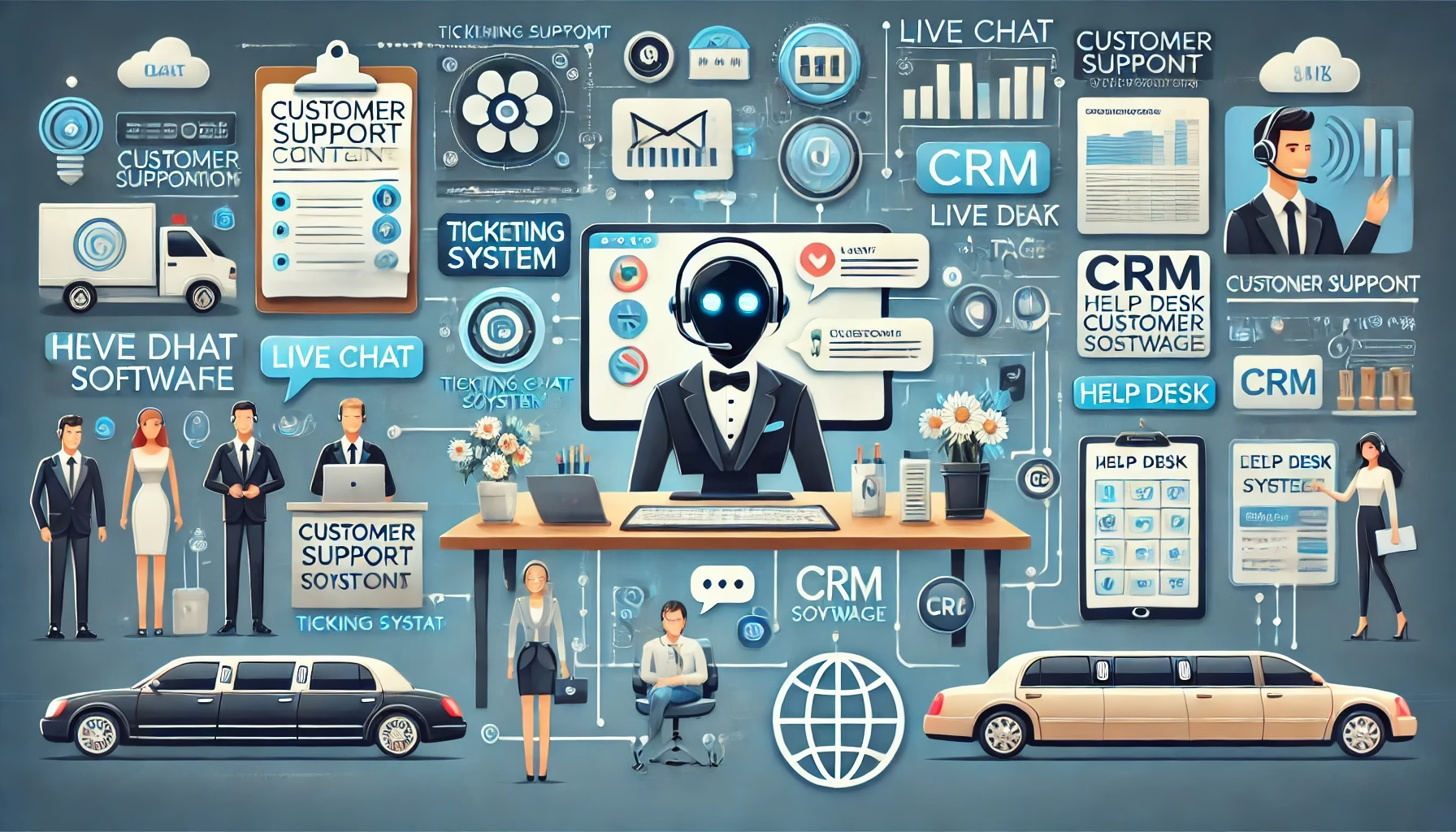The limousine industry, an integral part of luxury transport, has experienced significant changes due to evolving customer expectations, technological advancements, and competitive pressures. While demand remains high, companies face numerous challenges, particularly in dispatch efficiency, customer service, regulatory compliance, and operational costs. Here, we explore ten critical issues the limo industry faces, each with insights into possible solutions that balance effectiveness with industry realities.
1. Efficient Dispatching and Scheduling
Issue: Efficient dispatching remains one of the limo industry’s primary challenges, where delays can lead to dissatisfied clients, financial losses, and poor resource management. With unpredictable traffic and last-minute changes, dispatchers must ensure that vehicles and drivers are scheduled to provide timely service.
Solution: Investing in dispatch software, such as LimoAnywhere or customized dispatch systems, can greatly streamline operations. Advanced AI-based algorithms can analyze real-time traffic data and reroute vehicles as necessary, reducing delays. Offering flexible shift management for dispatchers, such as Sam’s ‘yellow slots’ system, may also help ensure reliable coverage without overworking staff.
2. Maintaining Service Quality Amid Rising Competition
Issue: The rise of ride-sharing services has increased competition in the transportation industry, forcing limo companies to differentiate based on luxury and service quality. Meeting customer expectations for premium services while maintaining profitability is challenging.
Solution: Emphasizing personalized customer service is key. Train drivers in customer interaction and etiquette, and prioritize customer feedback. Creating loyalty programs for repeat customers or offering customizable services can enhance customer retention and distinguish the company from competitors.
3. Balancing Pricing and Profit Margins
Issue: Rising operational costs, including fuel, maintenance, and labor, directly impact the limo industry’s profitability. Balancing competitive pricing with profit margins is a persistent concern, especially as customer expectations evolve.
Solution: Analyzing costs carefully and adjusting pricing dynamically based on demand can help balance profits and affordability. Implementing tiered pricing for different service levels (e.g., luxury versus standard options) can cater to a broader customer base while optimizing profits. Companies can also negotiate with suppliers or service providers for better rates on maintenance and fuel.
4. Compliance with Local and International Regulations
Issue: Limo companies operating across regions face various regulations, from licensing to environmental standards. Adapting to these constantly changing regulations can lead to significant administrative work and unexpected expenses.
Solution: Staying informed of regulatory updates and having a dedicated team to oversee compliance can minimize penalties and legal complications. Utilizing legal advisory services that specialize in transportation law may help streamline the compliance process. Partnering with dispatch providers familiar with international regulations may also facilitate smoother operations across borders.
5. Adapting to Technological Advancements
Issue: Technology advancements, including AI-powered dispatch and customer management software, offer new opportunities but also require significant investment and adaptation. Smaller firms, in particular, may struggle to integrate these technologies.
Solution: For companies with limited budgets, focusing on scalable solutions like cloud-based dispatch and customer management platforms can be cost-effective. Additionally, exploring platforms that integrate with existing software like Salesforce allows for greater adaptability. Employees can receive incremental training to gradually adopt new technology.
6. Ensuring Reliable Customer Communication
Issue: Maintaining effective communication with customers is crucial in the limo industry. Miscommunication about pickup times, location, or changes can lead to dissatisfaction and reputational damage.
Solution: Using AI-based outbound calling systems for scheduling and dispatch confirmation, such as the system used by Dispatch Solutions, can help automate and streamline communication with customers. Having a backup chat or phone answering service available can ensure timely responses to customer inquiries. Creating clear communication protocols for drivers and dispatchers also reduces potential misunderstandings.
7. Managing High-Quality Workforce and Training
Issue: Maintaining a well-functioning fleet is essential to avoid breakdowns and ensure customer safety. Regular maintenance and fleet management can be costly and logistically challenging.
Solution: Implementing a fleet management system to monitor vehicle health and schedule routine maintenance is crucial. Analyzing usage data can help optimize vehicle usage and reduce wear and tear. Leasing rather than owning vehicles can also reduce maintenance burdens, especially for smaller limo companies.
9. Building and Maintaining Customer Trust
Issue: In an industry reliant on trust, customer concerns over safety, reliability, and confidentiality can greatly impact a company’s reputation. Any breach of trust can lead to a significant loss in business and long-term reputational damage.
Solution: Building trust begins with transparency in service, pricing, and policies. Creating a robust confidentiality policy and training employees to handle sensitive information respectfully is essential. Providing a simple and transparent cancellation policy, such as the one-month notice policy at Dispatch Solutions, can also build customer confidence.
10. Adapting to Shifts in Customer Preferences
Issue: Modern customers prioritize convenience, accessibility, and sustainability, and these changing preferences affect the limo industry. Failing to adapt can lead to reduced bookings and poor customer retention.
Solution: Limo companies can respond to preferences for convenience by integrating mobile booking options and providing instant confirmations. To meet sustainability demands, companies can incorporate fuel-efficient or hybrid vehicles and advertise these efforts. Flexible service offerings, such as customizable routes or eco-friendly options, can help attract environmentally conscious clients.
Conclusion: Embracing Change and Innovation in the Limo Industry
Navigating these challenges requires limo companies to balance between service quality, regulatory compliance, cost efficiency, and customer satisfaction. Embracing technology, maintaining workforce reliability, and staying adaptable to shifting trends are vital strategies. By implementing robust systems for dispatch, communication, and compliance, limo companies can better position themselves to provide a consistently high level of service. Investing in these areas not only addresses current industry issues but also prepares companies for a sustainable future amid ongoing changes in customer preferences and competitive pressures.
Home | About Us | Pricing | Get Started | FAQ | Dispatch Daily | Contact Us
WhatsApp | Facebook | LinkedIn





Leave a Reply